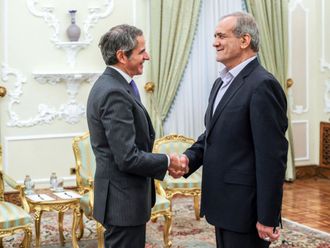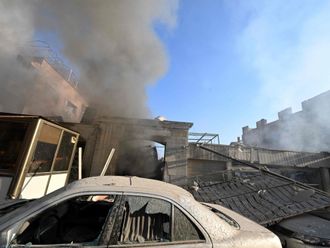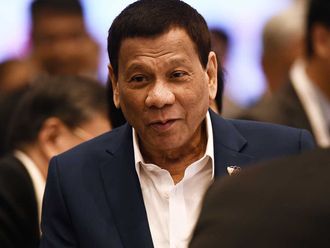On becoming the head of Egypt's Coptic Church in November 1971, Pope Shenouda III showed interest in promoting Orthodox Christianity far beyond Egypt. He built churches in Africa, mainly in Kenya, Zimbabwe and South Africa.
During his 41-year papacy, the Coptic Orthodox Church set up branches in North America, principally in the US and Canada where he appointed the first-ever bishops to lead dioceses that now comprise more than 200 parishes compared with just four in 1971.
Pope Shenouda also founded the First Coptic Orthodox Church in South America.
An advocate of inter-denominational Christian dialogue, Shenouda, who died on Saturday at the age of 88, sought to enhance the Coptic Church's ties with other churches. In 1973, he signed a joint declaration with Pope Paul VI of the Vatican to forge unity among all Christian churches.
Known as a gifted writer and a tolerant theologian, Shenouda devoted his writings to spread values of peace, co-existence and understanding among people of different faiths.
"He is like a philosophical peasant who combines monasticism and leadership, traits that have made him a unique spiritual leader," wrote the late Egyptian thinker Gali Shukri.
Shenouda used to publish articles in Egypt's semi-official newspaper Al Ahram. He showed a sense of humour during his weekly sermons.
However, many Egyptians, mainly Muslims, remember the late pontiff for rebuffing in the late 1970s the then President Anwar Sadat on his call to allow Coptic Christians to make a pilgrimage to occupied Jerusalem in Israel as a sign of normal ties between the two countries that had just signed a peace treaty.
"Egypt's Christians like its Muslims will not go to [occupied] Jerusalem before it returns to its original owners — the Palestinians," Shenouda III was quoted as telling an angry Al Sadat. "The Copts will not be used as a locomotive of the normalisation train [with Israel]," the pontiff added in a move that widened a rift between him and Sadat. Muslim militancy surged in Al Sadat's era amid claims from his opponents that he deliberately nurtured the tendency to stifle his critics, mainly leftists and Christians.
In September 1981, Al Sadat deposed Shenouda and exiled him at a monastery in western Egypt. Al Sadat's successor Hosni Mubarak, who took over in late 1981, released Shenouda and reinstated him.
Shenouda's ties with Mubarak were less turbulent.












